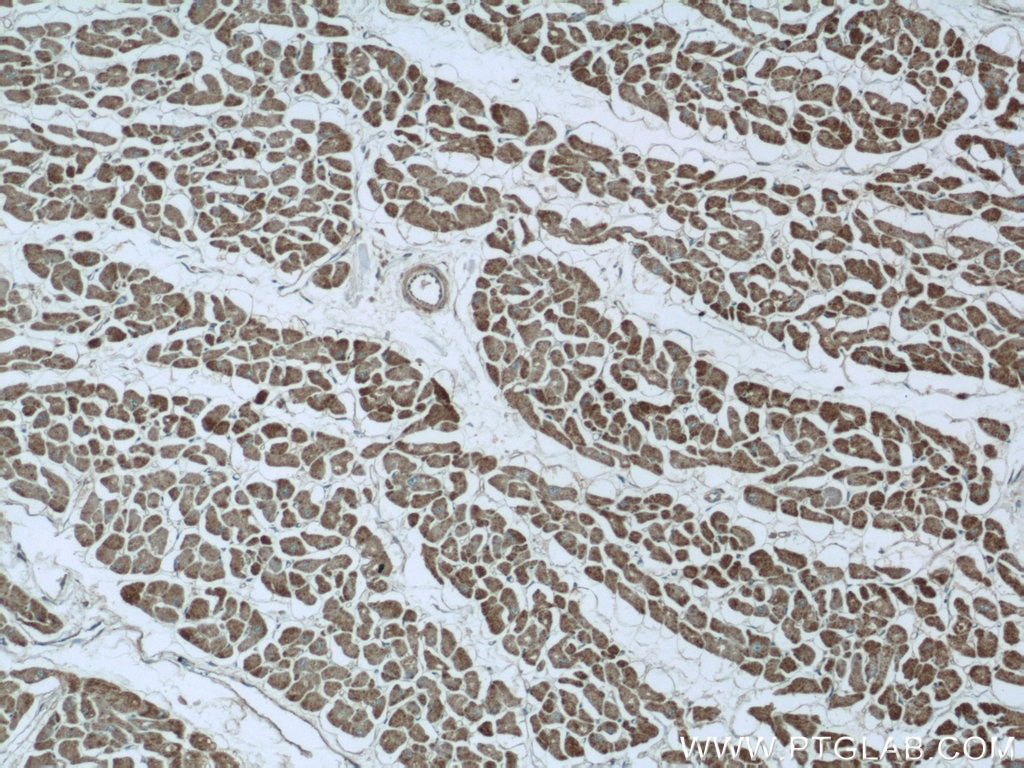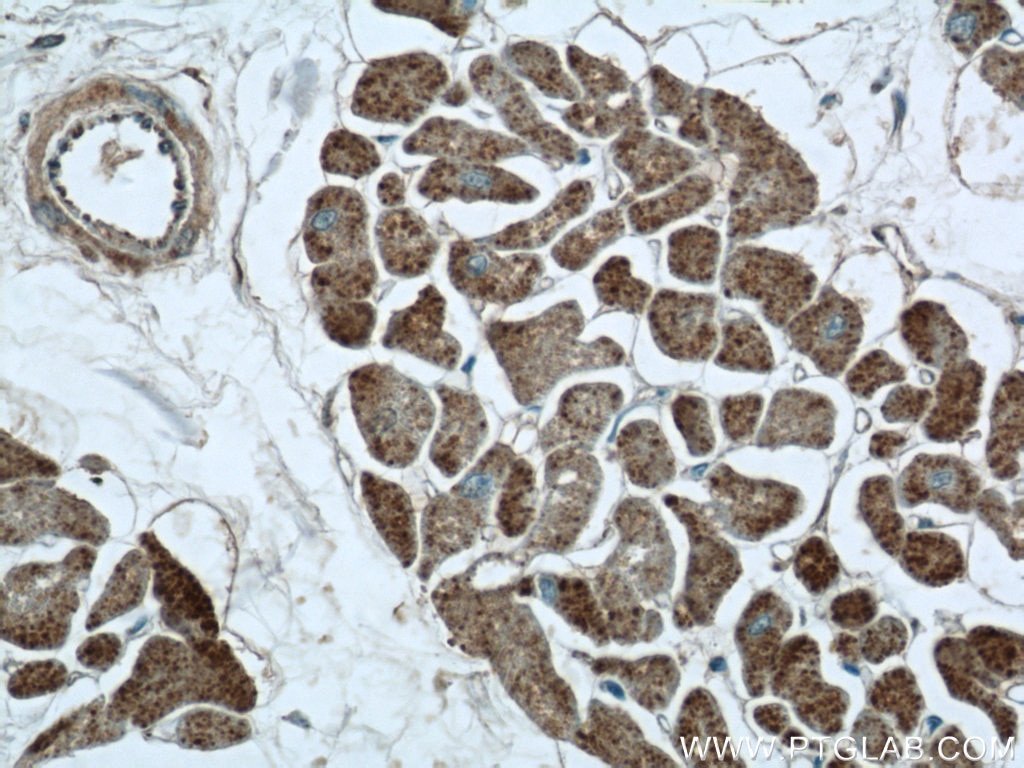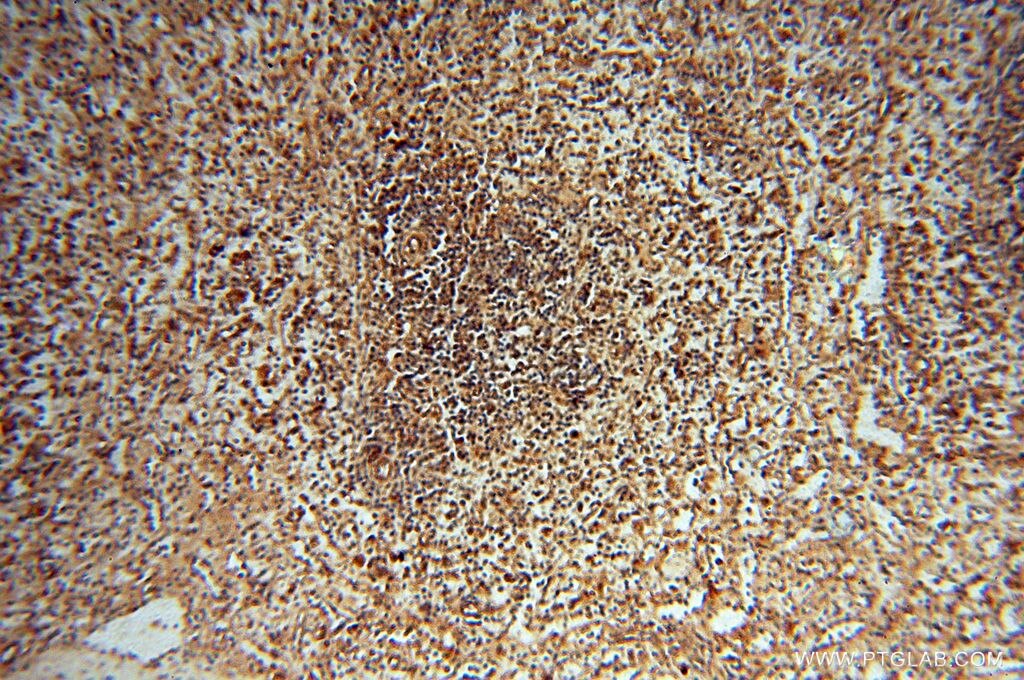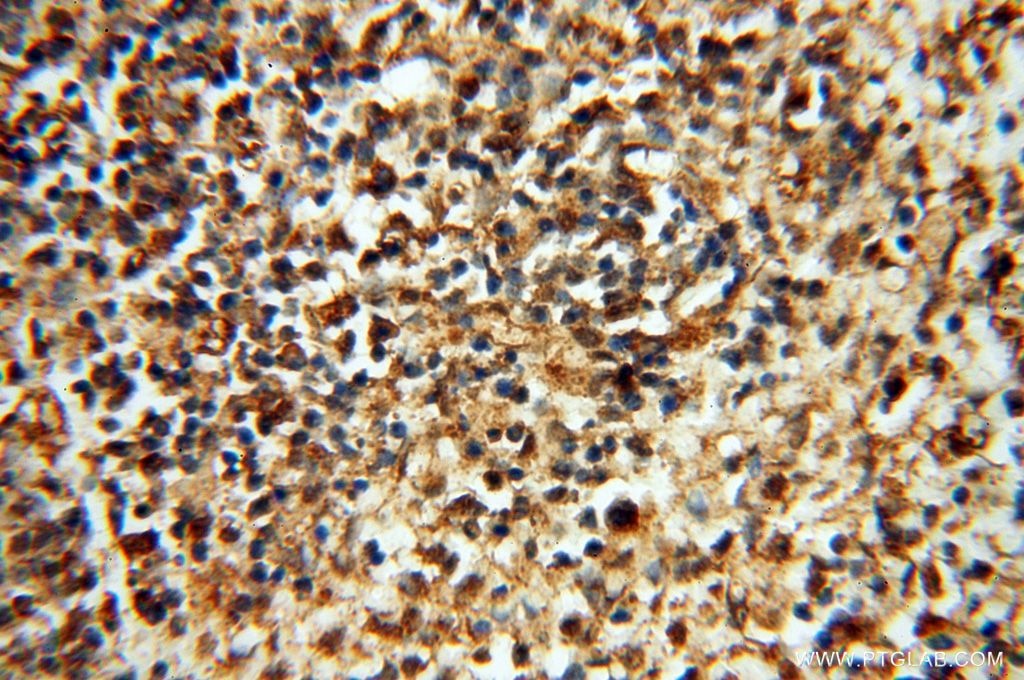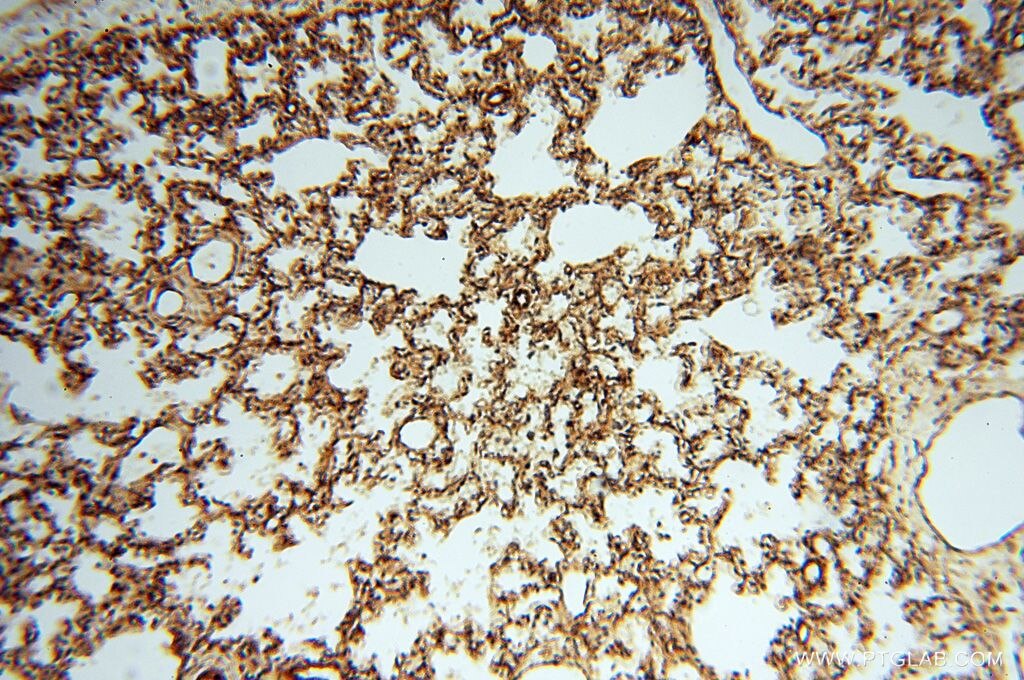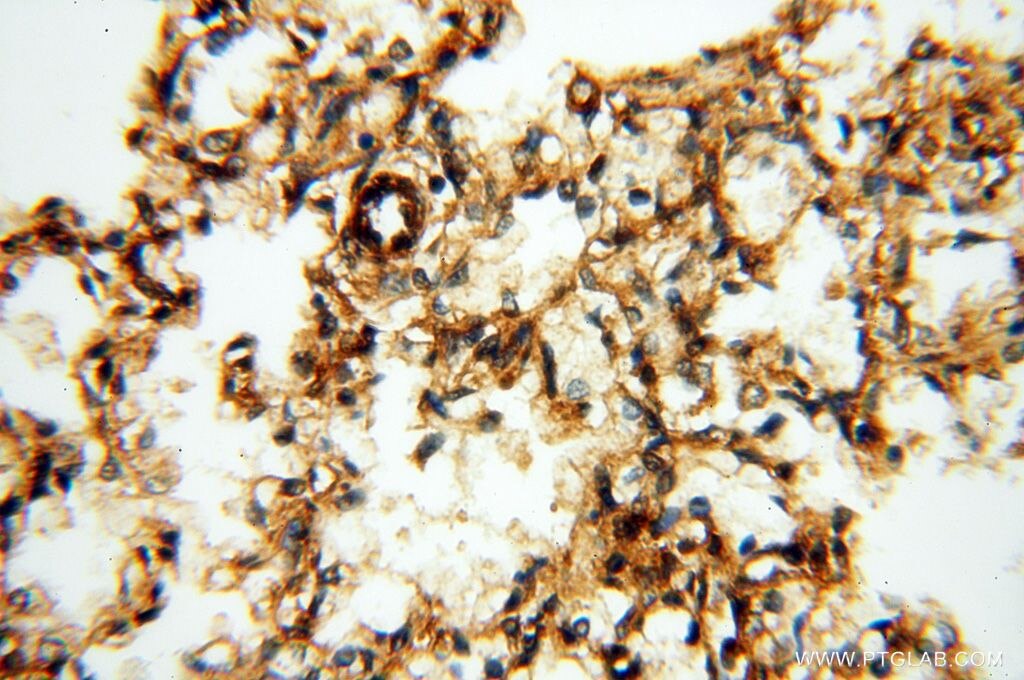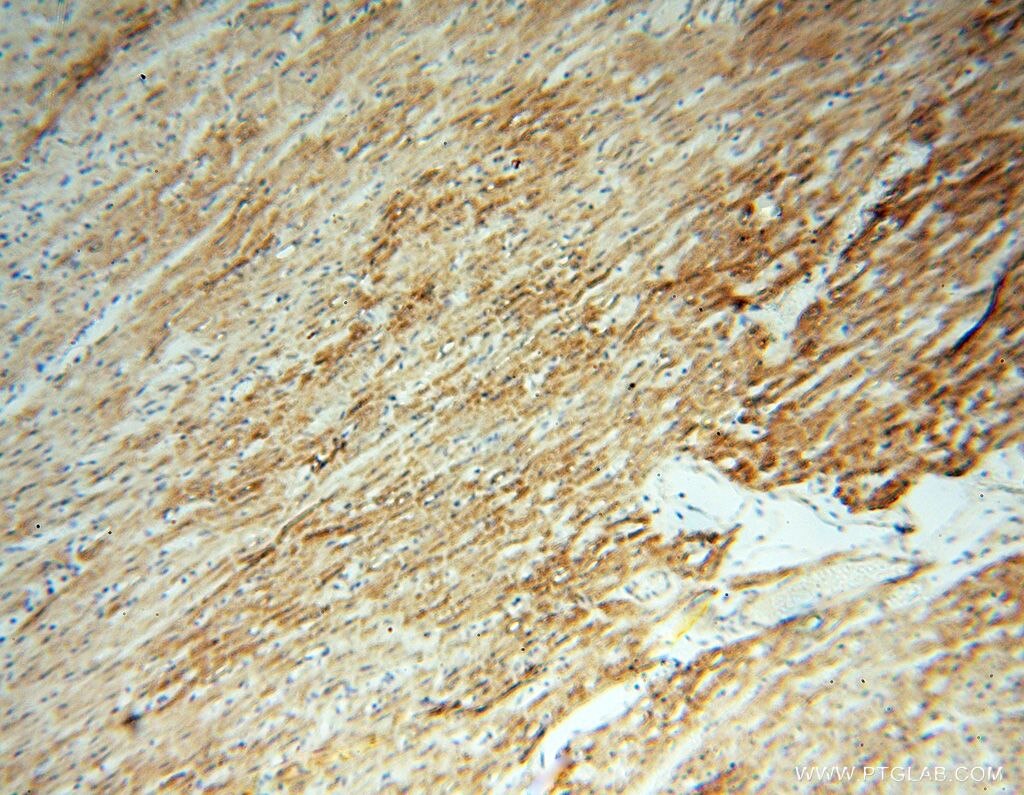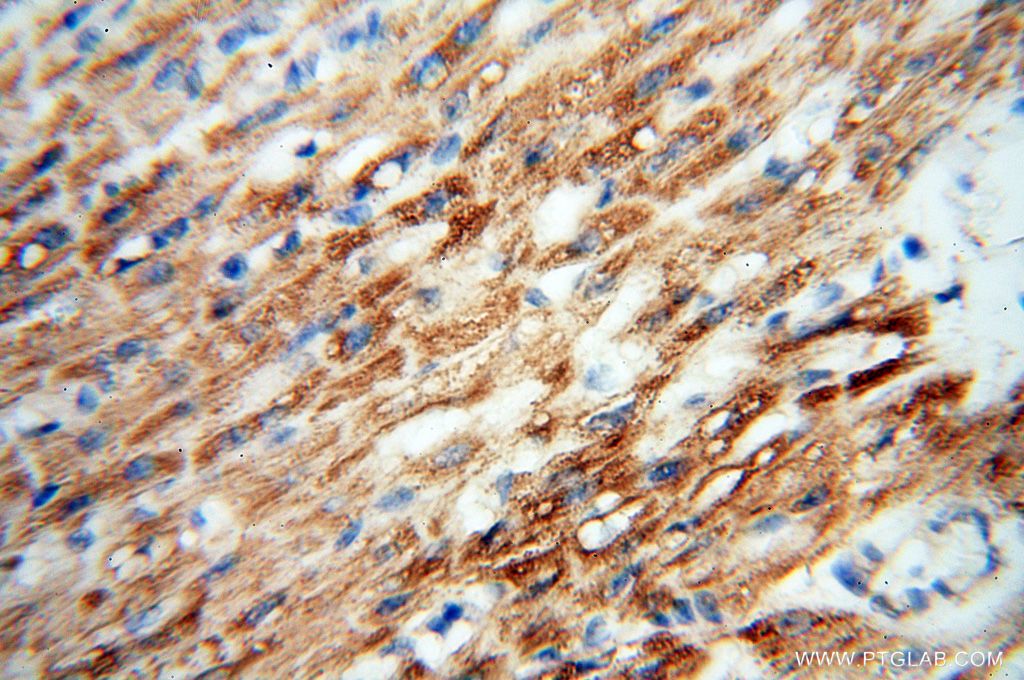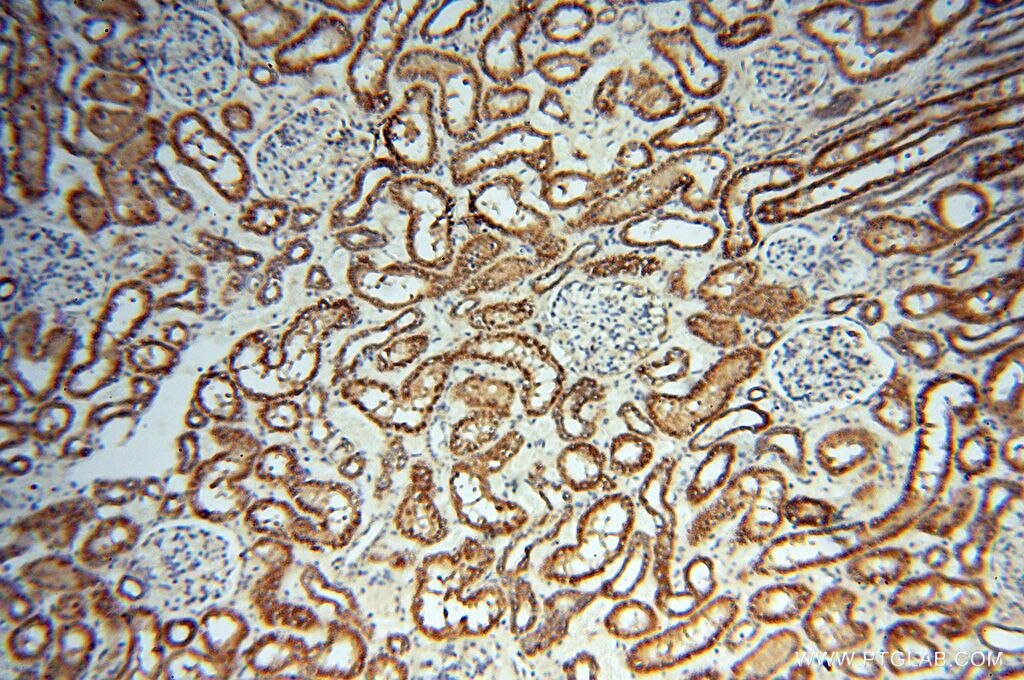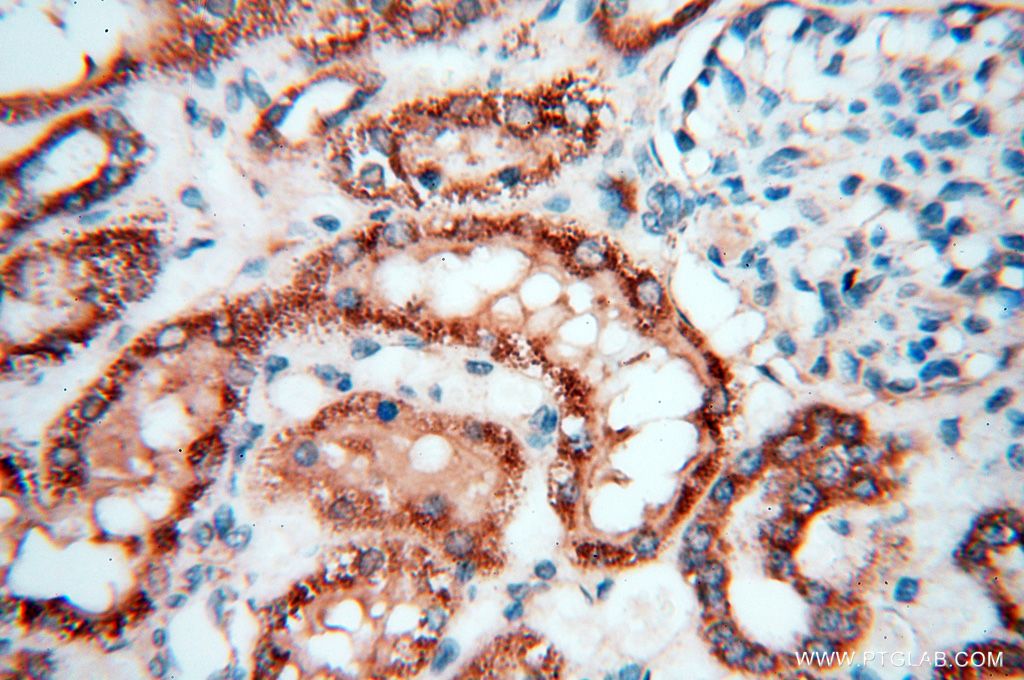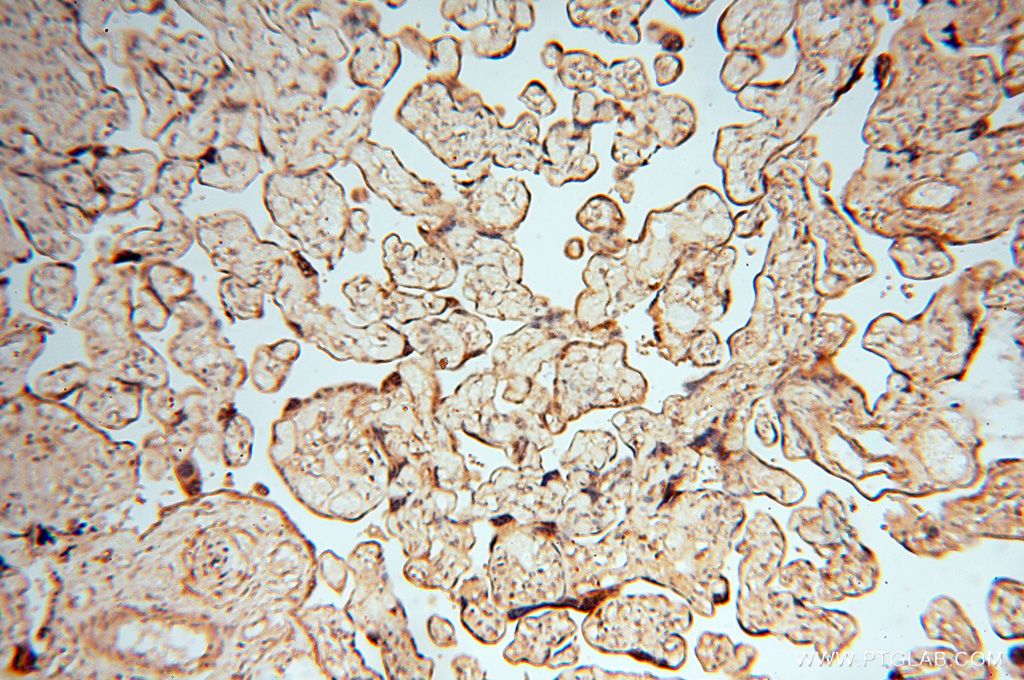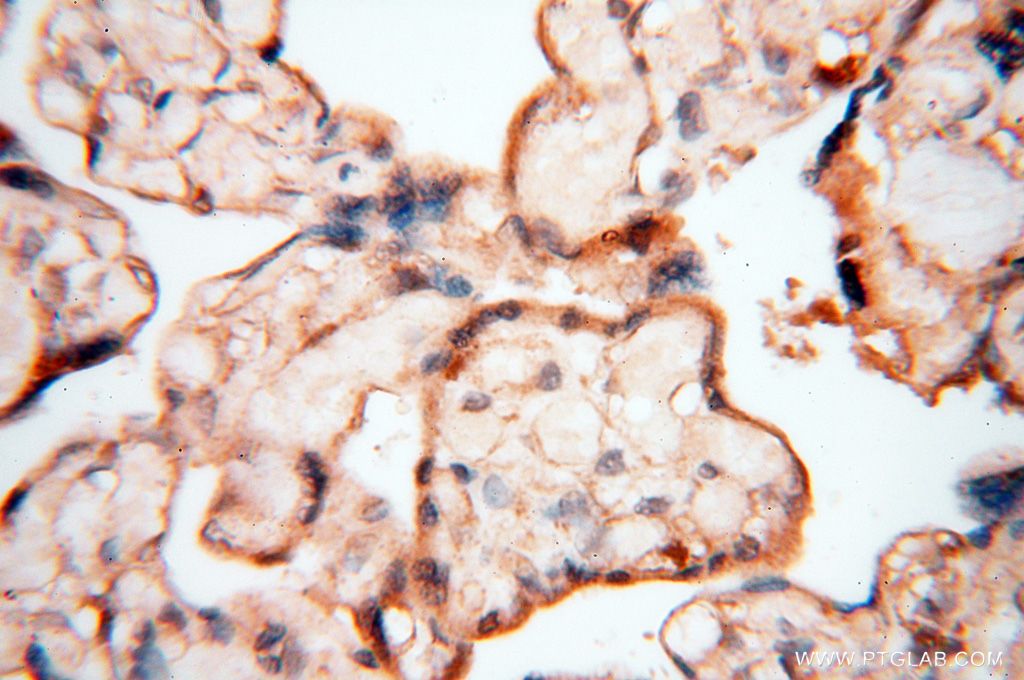Tested Applications
| Positive IHC detected in | human heart tissue, human kidney tissue, human lung tissue, human placenta tissue, human spleen tissue Note: suggested antigen retrieval with TE buffer pH 9.0; (*) Alternatively, antigen retrieval may be performed with citrate buffer pH 6.0 |
Recommended dilution
| Application | Dilution |
|---|---|
| Immunohistochemistry (IHC) | IHC : 1:20-1:200 |
| It is recommended that this reagent should be titrated in each testing system to obtain optimal results. | |
| Sample-dependent, Check data in validation data gallery. | |
Product Information
16876-1-AP targets FGF16-Specific in IHC, ELISA applications and shows reactivity with human samples.
| Tested Reactivity | human |
| Host / Isotype | Rabbit / IgG |
| Class | Polyclonal |
| Type | Antibody |
| Immunogen |
Peptide Predict reactive species |
| Full Name | fibroblast growth factor 16 |
| Calculated Molecular Weight | 24 kDa |
| GenBank Accession Number | NM_003868 |
| Gene Symbol | FGF16 |
| Gene ID (NCBI) | 8823 |
| RRID | AB_2104073 |
| Conjugate | Unconjugated |
| Form | Liquid |
| Purification Method | Antigen affinity purification |
| UNIPROT ID | O43320 |
| Storage Buffer | PBS with 0.02% sodium azide and 50% glycerol, pH 7.3. |
| Storage Conditions | Store at -20°C. Stable for one year after shipment. Aliquoting is unnecessary for -20oC storage. 20ul sizes contain 0.1% BSA. |
Background Information
FGF16 is a member of the fibroblast growth factor (FGF) family. Fibroblast growth factor (Fgf) signaling plays important roles in development and metabolism. FFGF16 is predominantly expressed in the heart. It plays an important role in the regulation of embryonic development, cell proliferation and cell differentiation, and is required for normal cardiomyocyte proliferation and heart development. This antibody is specific to FGF16.
Protocols
| Product Specific Protocols | |
|---|---|
| IHC protocol for FGF16-Specific antibody 16876-1-AP | Download protocol |
| Standard Protocols | |
|---|---|
| Click here to view our Standard Protocols |

